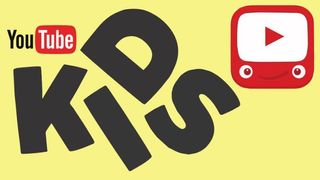YouTube Agrees to Change Kids Ad Policies

In a move that could take a bite out of its share of the advertising pie, YouTube has agreed to update its ad policies in kids content on its main platform, an effort that drew praise from one of YouTube's loudest critics.
In a letter to Sen. Ed Markey (D-Mass.) in response to a query from the Senator about its policies on child-directed content, Leslie Miller, VP of public affairs and public policy, said that it will now apply the same ad content restrictions for child-directed content on YouTube as it does on its YouTube Kids platform. "Only advertisements that are family-friendly will be served on Made for Kids Content, meaning that ads featuring sexually suggestive, violent or dangerous content, for example, will be prohibited," Miller told the senator.
"YouTube Main was created and remains a site for people 13 and over, but we are nonetheless putting in place protections for child-directed content that may be watched by unsupervised kids," she said.
YouTube said it continued to recommend that parents use YouTube Kids if they plan to allow their kids (under 13) to watch independently, but that it was adjusting its ad policies to "improve our experiences for kids and families from the ground up."
Related: Markey: YouTube Should Ban Product Placement in Kids Content
That new ground also includes prohibiting food and beverage marketing advertising in YouTube content targeted to kids, just as it does for YouTube Kids content. By contrast, broadcast and cable platforms have no similar prohibitions on food and beverage ads in kids content.
Markey had also asked whether formatting restrictions on YouTube Kids would extend to kid content on YouTube, including "maximum length (15-20 seconds for nonskippable ads and 60 seconds for skippable ads), and the requirement that ads are clearly identifiable as ads, apply to content that is directed to children on YouTube?"
Broadcasting & Cable Newsletter
The smarter way to stay on top of broadcasting and cable industry. Sign up below
Miller said there were no plans to do so, but with a caveat.
"All ads on YouTube have clear disclosures which identify them as ads," she said. "The same disclosures, consistent with legal requirements, are applied as a standard policy on all ads on YouTube.com. Ads are further visually demarcated by a change in color on the video timeline. While we do not have plans at this time to update our advertising formatting requirements on YouTube Main, we will continue to apply the same advertising category restrictions on all content that is Made for Kids as we do for YouTube kids."
And while YouTube currently allows product placement, with adequate disclosures, in child-directed content on the main platform, Miller said "we are continually considering the appropriate treatment for paid product placements and endorsement."
“I am pleased that YouTube has heeded my calls to update its advertising policies and enhance protections for the children who flock to this website," said Markey. "YouTube’s announcement that it will prohibit targeted, violent, unhealthy, and inappropriate advertising to kids on its main platform is a big win for the millions of families whose kids visit YouTube every day,” he said, but his praise was not unalloyed.
“Unfortunately, YouTube stopped short of instituting other important policy changes that would serve the interests of kids," he said. "I’m calling on YouTube to prohibit inherently manipulative marketing from online influencers who peddle products to kids in stealth advertisements that rack up millions of views from children.”
“Sen. Ed Markey has long been and remains the champion for kids,” said Jeff Chester, Center for Digital Democracy (CDD) executive director, another of the loudest voices for boosting online ad restrictions in kids content. “Through the intervention of Sen. Markey, Google has finally committed to protecting children whether they are on the main YouTube platform or using the YouTube Kids app. Google has acted responsibly in announcing that its advertising policies now prohibit any food and beverage marketing on YouTube Kids, as well as ads involving ‘sexually suggestive, violent or dangerous content.’ However, we remain concerned that Google may try to weaken these important child- and family-friendly policies in the near future. Thus we call on Google to commit to keeping these rules in place, and to implement other needed safeguards that children deserve."
Josh Golin, executive director of Campaign for a Commercial-Free Childhood (CCFC), was also pleases. “We are so grateful to Senator Markey for his leadership on one of the most crucial issues faced by children and families today. And we commend Google for implementing a robust set of advertising safeguards on the most popular online destination for children. We urge Google to take another critical step and prohibit child-directed influencer content on YouTube; if this manipulative marketing isn’t allowed on children’s TV or YouTube Kids, it shouldn’t be targeted to children on the main YouTube platform either.”
Contributing editor John Eggerton has been an editor and/or writer on media regulation, legislation and policy for over four decades, including covering the FCC, FTC, Congress, the major media trade associations, and the federal courts. In addition to Multichannel News and Broadcasting + Cable, his work has appeared in Radio World, TV Technology, TV Fax, This Week in Consumer Electronics, Variety and the Encyclopedia Britannica.

